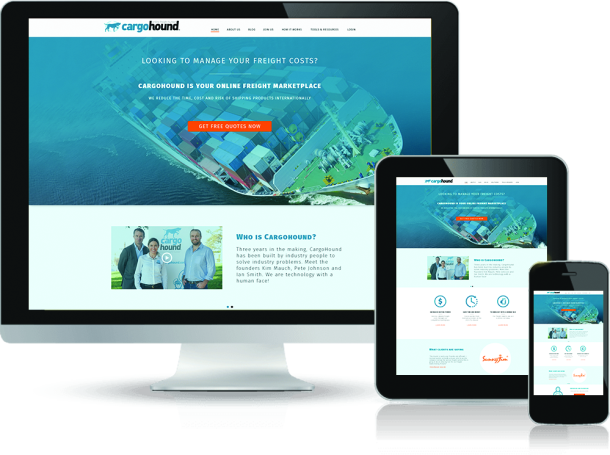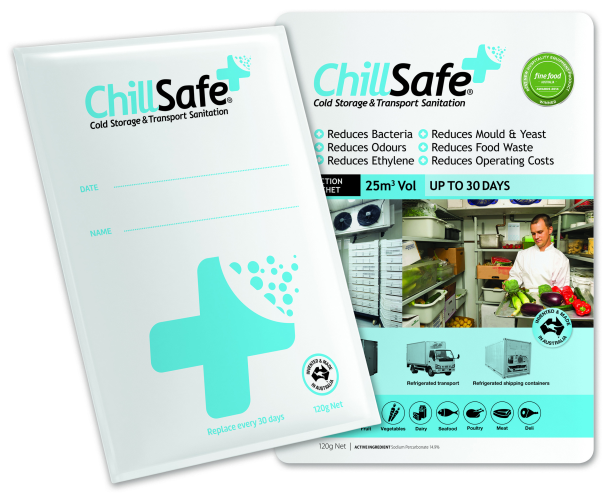The rise of the middle classes in emerging economies has major implications for temperature-controlled shipment and storage across the globe. Here are three new innovations that could help address some of the challenges.
Food security looms as a major global issue, but even if enough food can be produced, the cold chain must evolve or much of it will perish before it reaches the people who need it. Here are some bright ideas to help smooth the way.
1. REDUCING EMISSIONS IN ASIA
The rapid growth in Asian middle class consumers – which are forecast to increase six-fold to more than 3 billion people by 2030 – has major implications for transport refrigeration – and its emissions.
Delivering clean and sustainable cold technology is therefore crucial, according to UK company Dearman, which has developed an engine that it says can deliver zero-emission power and cooling.
The Dearman engine is powered by the rapid expansion of liquid nitrogen, which delivers both power and cooling, making it more efficient than liquid nitrogen systems which simply evaporate nitrogen to cool containers.
On the back of this technology, the company is in the process of developing a portfolio of proprietary technologies, products and services that it says deliver significant reductions in fuel, emissions and cost.
These are moving into demonstration and early deployment, and with the right support, could offer an alternative to conventional technologies in these regions, according to Dearman.
Typically, transport refrigeration systems are powered by a secondary diesel engine, which, despite their relatively small size, are disproportionately polluting, and can emit up to 29 times the particulate matter and six times the NOx as a modern truck engine.
Dearman says its technology poses other advantages for operators: an up to 30 per cent saving on running costs; zero emissions at point of use; high efficiency in operation; and faster pull-down rates than provided by incumbent technologies.
And because cold chains in emerging markets are currently rudimentary or non-existent, Dearman says, its system could enable these countries to leapfrog dirty diesel systems altogether.
Rather than supplementing cold chains diesel systems, it says, the Dearman system in these regions would provide a commercially viable alternative with minimal barriers to entry.
Dearman’s CEO Toby Peters says that pursuing a diesel-based model would replace the societal problems of food loss and hunger with the environmental issue of chronic air pollution.
“If these new cold chains are built using conventional technologies, the pollution and health impacts will be severe. This threat is not yet widely appreciated and warrants further investigation and debate,” he says.
The first application of Dearman technology to provide sustainable and efficient zero-emission transport refrigeration is currently undergoing trials at the UK engineering and test centre, MIRA.
STREAMLINING THE SUPPLY CHAIN
CargoHound is a new online marketplace for international freight and it aims to connect importers and exporters with freight forwarders.
By doing so, it can help exporters reduce the time, cost and risk of shipping internationally, and it also benefits sellers by offering new business opportunities, according to the company's CEO Ian Smith.
Smith says that CargoHound allows importers and exporters to request as many quotes as they like for free. They can then compare quotes from multiple “community rated” services providers, to identify the one that best suits their requirements and budget.
At present, Smith says, many companies are just using the same freight forwarder each time without knowing if their rates are competitive.
“Container rates have dropped 25 per cent on some routes in the last six months due to over- capacity,” he says.
“If you haven't checked freight rates in the last 12 months, you're probably missing out.”
CargoHound is well-suited to food and beverage companies, according to Smith, as well as SMEs, as most have limited resources to manage logistics in their company.
One of the biggest users to date is macadamia products manufacturer, Brookfarm, and its sales executive Jackie Barnes,who has handled exports for many years, says CargoHound has been of benefit.

“The time saved alone makes this a valuable tool but I also saved $300 on a reefer container shipment to Japan," she says.
At just six months from launch, Smith says 19 freight forwarders and 375 exporters and importers have signed up to use the system.
“Studies back up the need for this site,” he says. “They show that 65 per cent of Australian exporters believe transportation and freight costs are important factors adversely affecting their competitiveness.”
The website took three years to develop and company was founded, and initially funded, by Smith, Kim Mauch and Pete Johnson, all of whom have worked in the industry for many years.
Mauch came up with the idea to help address the industry's inefficiencies and transparency problems.
CargoHound was recently announced as the winner of Australian Anthill Magazine's Super New Startup award.
PROTECTION FROM PATHOGENS
South Australian company Coolsan Australia recently launched a cool room sanitation product ChillSafe, an environmentally activated sanitation product designed for commercial cool rooms and cold chain transport.
ChillSafe reduces bacteria and ethylene in cool rooms which improves shelf life and quality of perishable foods, according to its makers.

The ChillSafe sachet is an environmentally activated Reactive Oxygen Species (ROS) generator which activates by absorption of water vapour, and once activated it continuously releases highly reactive oxygen species into the air of the refrigerated space for up to a month.
The ROS continuously works against the two agents mainly responsible for damage to, and contamination of fresh or openly exposed produce; Bacteria and Ethylene.
Coolsan CEO and co-founder Thomas DeMasi said government assistance helped pay for testing, and once these results proved the concept, it invested and scaled up for industry-specific testing.
“Now the product is in use in a wide range of food service operations and trials are progressing in the USA. We’ve also signed our first distributor in South Africa and had other export inquiries from the UAE, Israel and the UK.”







